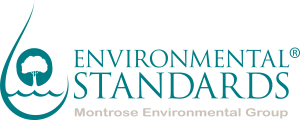
There’s no doubt about it, having a partner can definitely make life easier – especially when facing challenges. This is especially true in the case of environmental remediation. Many states require the remediation of contaminated properties to be overseen by licensed remediation professionals. These professionals have a great responsibility, and even personal liability, to perform these services in accordance with the state’s applicable standards and regulations. They are subjected to a strict code of conduct established by statute and regulation and must ensure that the remediation he or she oversees is protective of public health, safety, and the environment. One of the challenges is that no single remediation professional is a subject-matter expert (SME) on everything that may come into play on any given site.
With that level of responsibility and liability, finding a partner to help identify appropriate solutions is critical. While there may not be a dating site for remediation professionals (at least not yet), a partner often sought is a Chemistry SME. As a colleague recently confessed to me, “when you think about it, our decisions are 80% chemistry driven.”
Chemistry SMEs are valuable partners throughout the life cycle of a remediation project. Here are some of the services a Chemistry SME can provide:
Planning
- Performing research on industrial, commercial, and agricultural history and the past chemicals and materials used,
- Selection of contaminants of potential concern,
- Developing thoughtful data and method quality objectives,
- Writing critical components of Quality Assurance Project Plans (QAPPs),
- Selecting competent laboratories and the correct analytical methods,
- Advising if forensic analysis may be of value to the client,
- Negotiating costs with the laboratory, and
- Providing guidance on laboratory limits, whether they are method detection limits, practical quantitation limits, reporting limits, etc., and how to ensure that when results are reported, regulatory limits are met.
Field Work
- Getting the right bottleware from the laboratory for field sample collection,
- Understanding the nuances of sample preservation, and the impacts of samples being improperly preserved,
- Providing on-call field support if reduced sample volume or unusual media is encountered,
- Selecting the quality control samples and explaining to field staff and data users why they matter,
- Reviewing Chain-of-Custody documentation for accuracy and completeness, and
- Communicating effectively with the laboratories (we can speak the same language) when there are questions about the samples, media, or methods.
Data Quality and Usability
- Reviewing and troubleshooting the laboratory data
- Qualifying the data for data users, including regulatory authorities,
- Consulting with the remediation professional if limitations of the data require resampling,
- Investigating outliers in data sets, and advising if they are usable,
- Conducting forensic analysis and defending outcomes,
- Completing the necessary paperwork and reporting required for the project, and
- Being a strategic partner when discussing remediation alternatives with a client or regulatory agency.
A successful partnership with a Chemistry SME gives the licensed remediation professional peace of mind and confidence in the decisions being made.
We have all seen it, or experienced it – laboratory or data quality issues that result in budget overruns and deal killing project delays. Steps to negate and control these issues by having an experienced chemistry SME on the team results in a project that is efficient, cost effective, and of a quality that ensures confidence by both the client and the regulatory agency. If you are seeking that kind of stand-by partner Chemistry SME, contact Environmental Standards.
